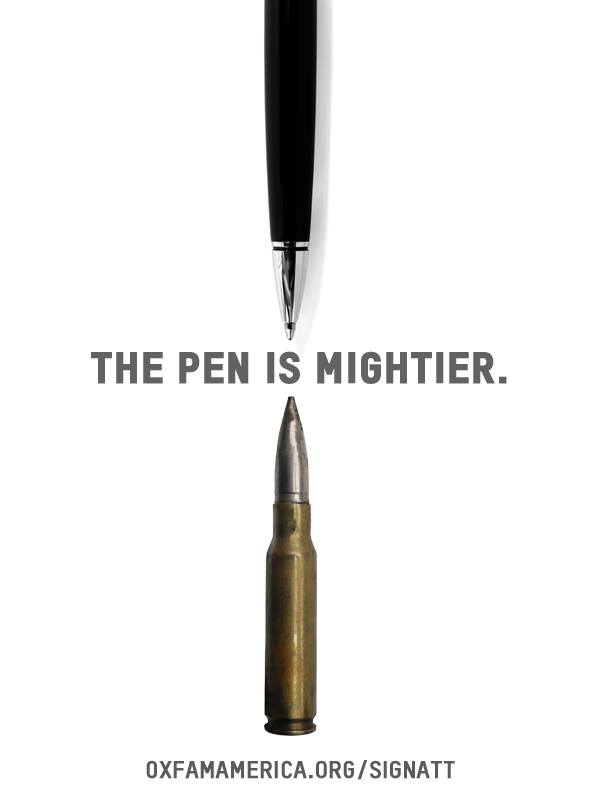Why Secretary Kerry did the right thing by signing the Arms Trade Treaty
For the world’s foremost arms exporter, this signature is a powerful step.
Marc Cohen is a Senior Researcher on Humanitarian Policy at Oxfam America.

Today, Secretary of State John Kerry signed the Arms Trade Treaty (ATT) on behalf of the United States. Despite a lot of ill-informed and ill-intentioned criticism of the Treaty, he did the right thing.
As we point out in a new Oxfam briefing paper, Saving lives by common sense, the ATT is an agreement that will have a positive impact on US security, civilians around the world affected by conflict and instability, and poverty alleviation. The Treaty requires arms-exporting countries to refrain from shipments when there is an “overriding risk” that the weapons will support genocide, crimes against humanity, or war crimes. So the ATT places a stigma on arms transfers that are likely to contribute to mass atrocities, violations of international human rights and humanitarian law, terrorism, or global organized crime.
The Treaty requires the governments that sign it to establish effective arms import and export control systems, and also to cooperate and share information about the arms trade. By shining a bright light on one of the world’s least transparent trade sectors, the ATT will inject a new measure of accountability in the global arms bazaar. The Treaty also requires signatory states to assess the risk that arms transfers pose to women and children, and thus offers an important new tool in the worldwide fight against gender-based violence.
The goals of the ATT are in keeping with long-standing US policy and practice. Both Republican and Democratic administrations have sought to keep arms exports from fueling atrocities and have worked to reign in rogue arms dealers. The Treaty will establish a new global regulatory framework for conventional weapons while recognizing that legal arms sales are a legitimate part of international commerce and security.
The United States already has an extensive arms export and import control system in place. For that reason, the Obama Administration argues that implementation of the ATT would not require any new legislation.

Why then bother with an international agreement? Opponents of the ATT claim that it gives up too much American freedom of action to justify the supposed benefits. But if the United States ratifies the Treaty, that will help prevent future Administrations from trying to lower the strong standards that are now in place as a matter of policy. By ratifying the ATT, the United States will become a full voting member when the parties to the Treaty hold their periodic meetings. It will be able to influence decisions on implementation and amendments, as well as the staffing of the ATT Secretariat. Most importantly, by accepting the Treaty, the United States will encourage other countries to join in the effort to regulate the arms trade, prevent atrocities, and promote peace and sustainable development.
A big objection to the ATT is that it undermines the Second Amendment right of US citizens to keep and bear arms. That’s a red herring. The ATT only applies to global arms shipments, and it explicitly leaves it up to states that sign the Treaty as to how they are going to regulate and control domestic arms transfers. And besides, it’s well established that a treaty can’t nullify the constitutional rights of US citizens.
President Obama took a very important step toward a more secure world by authorizing Secretary Kerry to sign the ATT and making the United States the 91st signatory.
Now it’s time for the US Senate to do its part and ratify this life-saving global agreement.
